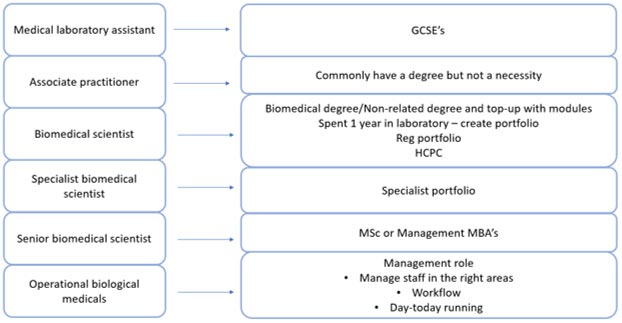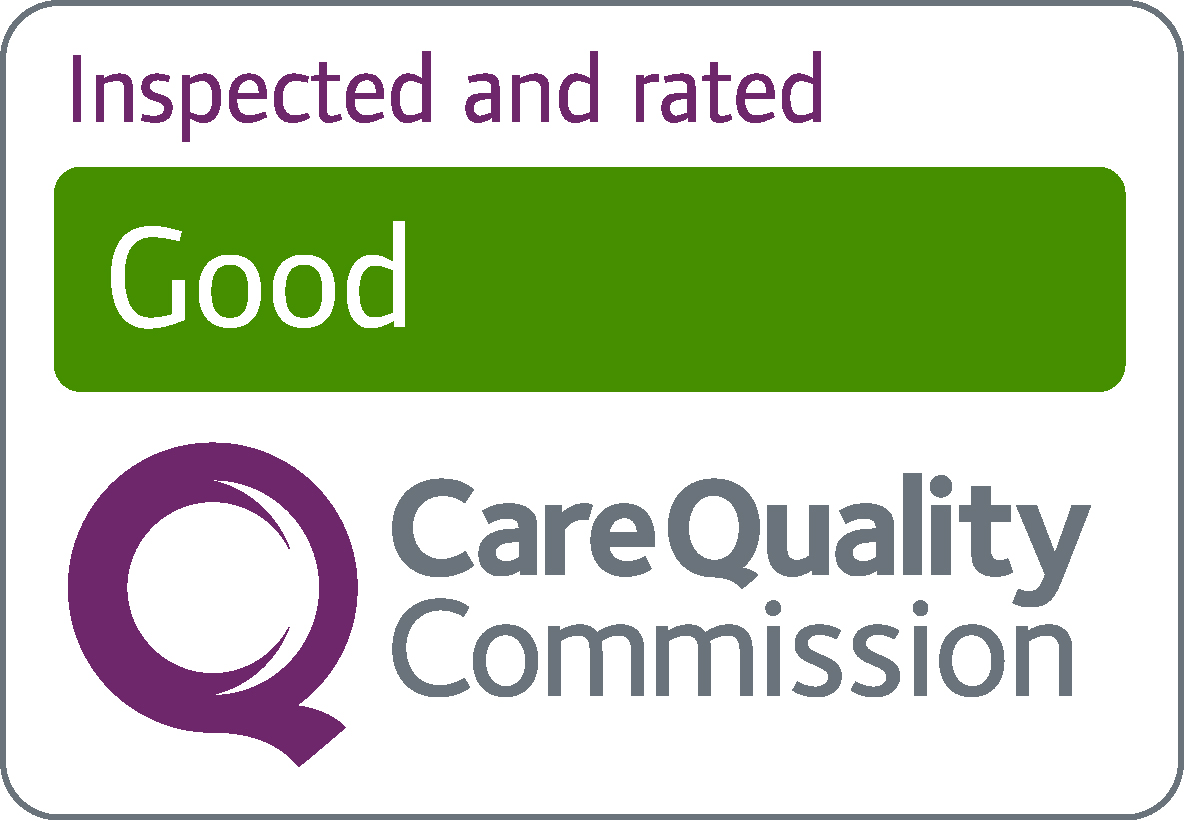Black Country Pathology Services (BCPS) was formed as a partnership by 4 trusts to ensure optimisation of resources. These Trusts are: The Dudley Group NHS Foundation Trust, (DGFT), The Royal Wolverhampton NHS Trust, (RWT), Sandwell and West Birmingham Hospitals NHS Trust, (SWBH) and Walsall Healthcare NHS Trust, (WHT).
BCPS provides a world class service with potential to innovate. It serves 1.76 million patients and conducts 60 million tests. This partnership has led to over 27,000 more community phlebotomy appointments, improved TAT, access and workflows. All in all, allowing a better-quality service for the benefit of both employees and patients.
Due to this new formed network of trusts it also means that there are unique and amazing opportunities for work as well as a highly supportive training and development network.
Summary of job roles
Medical Laboratory Assistant
Assist & support biomedical scientists in providing a professional laboratory service.
Main Tasks and Responsibilities:- To work in a designated area of the department under the supervision of a section leader but will organise own work tasks or activities.
- To understand and perform work in accordance with the standard operational policies using basic theoretical knowledge.
- Ensure that documentation is maintained to the Pathology standard (including electronic records).
- Be able to solve basic problems within work area and refer unresolved problems to a more senior member of staff.
- To prepare specimens for diagnostic testing.
- To contribute towards a culture of quality in the department and to comply and promote the quality initiatives within the department consistent with maintaining laboratory accreditation.
- GCSE’s in Maths, English language & science – grades A-C
- High attention to detail
- Able to follow written methodologies/protocols
- Computer skills
- Teamwork
- Organised
Biomedical Scientist
Able to perform all core scientific and interpretive work, which corresponds to the training and qualifications of a Registered Biomedical Scientist.
Main Tasks and Responsibilities:- To be proficient in designated areas of diagnostic work within the department and to provide a comprehensive and appropriate laboratory service to patients and staff.
- To undertake a range of diagnostic tests and screening procedures through to initial interpretation.
- Take part in duties at a level of autonomy requiring decision-making but can refer to more senior or medical staff for support.
- To perform work in accordance with the standard operational policies using intermediate theoretical knowledge.
- Ensure that documentation is maintained to the Pathology standard (including electronic records).
- Identify and report clinical risks so that appropriate action can be taken in accordance with the Trust risk management policy.
- To contribute towards a culture of quality in the department and to comply and promote the quality initiatives within the department consistent with maintaining laboratory accreditation.
- To assist in maintaining appropriate internal and external quality assurance and meeting standards required by external assessment.
- To support all diagnostic procedures provided by the department.
- To measure and monitor the accuracy and precision of laboratory investigations using appropriate quality control procedures.
- To carry out corrective action when quality control and assurance procedures indicate loss of performance.
- An honour degree or equivalent in a biological science
- HCPC Registration
- Experience working in a pathology department
- Ability to plan & prioritise work
- High attention to detail
- Able to follow written methodologies/protocols
- Excellent communication skills
- Computer skills
- Teamwork
- Organised
Clinical scientists
Main tasks and Responsibilities:- Participate in the work of the department in clinical liaison, laboratory and infection control, under supervision of the consultant clinical scientist. This includes but not limited to: authorisation of laboratory reports, dealing with telephone enquiries from clinicians and attending MDTs.
- Contribute to method development and validation.
- Interpret laboratory results and take appropriate action e.g. authorisation of results, ordering relevant follow-up laboratory tests, adding technical and clinically relevant comments, referring results for an expert opinion, informing the requestor of clinically significant results.
- Liaise closely with clinical colleagues concerning the diagnosis and management of patients.
- Contribute to the teaching of other members of staff across the trust including biomedical scientists, trainee clinical scientists, and other healthcare professionals.
- Participate in research and development.
- Attend appropriate senior staff and management meetings and taking on a leadership role.
- Contribute to the production of business cases for the department.
- Support maintenance of the laboratory quality management system.
- Use DATIX for reporting clinical incidents.
- Successful completition of The NHS Scientist Training Programme or equivalence.
- BSc in pure or applied science plus MSc in chosen specialism.
- HCPC Registered
Qualifiations

Student process
Students who are interested in completing a biomedical science degree in hopes to go into a biomedical science career can look at universities such as Wolverhampton, Aston, Coventry and Keele here in the Midlands.
Studying at one of these universities allows the opportunity to do a voluntary placement year in an NHS laboratory to complete your portfolio before completing your degree. This is an amazing opportunity which is incredibly competitive as there are often only around 30 spots within this region.
This placement year provides the chance to work in a real laboratory as well as learning vital information through a course of workshops on topics such as quality management and how to HCPC register as well as having guest lecturers to build networks with. Completing this placement year allows you to leave university and register immediately for your HCPC and start your career as a biomedical scientist.
If you don’t get to complete a placement year you will need to complete a portfolio after leaving university meaning you can start your career as a trainee BMS and complete your portfolio as you work.
Tips- Completing a placement year allows you to step straight into a BMS role.
- Any laboratory experience is great!
- Being geographically flexible will provide more opportunities for employment

